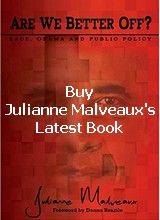|
|
|

|
| Feb 20, 2020 - Issue 806 |

|
|
|
This page can be shared

|
By Paul Rockwell

"There are two kinds of delegates at Democratic Party
Conventions today: real delegates (duly elected in primaries
or caucuses from the states) and fake delegates, delegates
artificially created by the Democratic National Committee.
These delegates, who lack direct support from primary voters,
are called superdelegates."
|
|
There is much talk
among Democratic Party insiders about restoring the role of
superdelegates on the first ballot at the Democratic Party convention.
Many young activists and voters were not alive when the superdelegate system was conceived and born.
There are two kinds of delegates at
Democratic Party Conventions today: real delegates (duly elected in
primaries or caucuses from the states) and fake delegates, delegates
artificially created by the Democratic National Committee. These
delegates, who lack direct support from primary voters, are called
superdelegates.
The seating of delegates at
Democratic Party conventions has often been a source of conflict. In
1964, Fanny Lou Hamer led a sit-in on the convention floor. The
Mississippi Freedom Democrats wanted nothing more than a few convention
seats—seats to which they were entitled by open, fair elections in
their home state. Walter Mondale, who was to become the architect of
the current superdelegate system, refused to seat the elected delegates
of color in 1964. Wait until 1968, Mondale insisted, as the
representative of the Credentials Committee.
The non-violent mass movements of
the 60s; the passage of the Voting Rights Act; the Poor People’s
Campaign and march on Washington, led by Dr. King; the lowering of the
voting age; the massive anti-war demonstrations; and the anti-nuclear
campaigns—all generated a sustained groundswell of new voters in
Democratic party politics. However, far from welcoming the newly
enfranchised activists, party leaders were filled with fear—class and
race fear. They never accepted the democratic reforms enacted in the
1970s, when youth and many people of color participated for the first
time in establishment politics. Under segregation, prior to the civil
rights movement, the Democratic Party saw no need for superdelegates.
The superdelegate system, as we
know it, came from the backlash of the 1980s. In January 1982,
supported by Mondale, the Hunt Commission and Democratic National
Committee reversed grassroots reforms. They rewrote the rules, not to
make elections open and fair, but to make sure the centrist
(right-wing) candidates maintained hegemony over nominees and party
affairs. It was out of fear of new uncontrollable voters that the
Commission created a block of uncommitted delegates drawn from a
primarily white, male establishment.
Mondale, the same insider who
prevented elected Mississippians from taking their seats in 1964,
played the pivotal role in creating hundreds of unelected delegates in
1984.
Superdelegates comprised 14 % of
the convention in 1984 (they constitute 16% today), and eighty-five
percent of the superdelegates picked Mondale! Superdelegates claimed
Mondale was a “sure winner.” He was trounced in the presidential
election.
Nevertheless, the superdelegate
number passed the 600 mark by 1988, as Jesse Jackson and the Rainbow
Coalition (supported by Burlington Vermont Mayor Bernie Sanders) gained
momentum. The Jesse Jackson campaign, especially the massive victory
over Dukkakis on Super-Tuesday, electrified the country. Jackson won 7
million primary votes in 1988, more than Mondale won as a nominee in
1984. Many party regulars were gripped with panic, and some
superdelegates, backed by mainstream media, organized a stop-Jackson
movement within the party. Jackson protested the role of
superdelegates, but his challenge went unheeded. Party leaders
continued to look for ways to blunt the growing power of grassroots
movements. While they could not stop voters from voting, they could
turn superdelegates into a countervailing force.
Mondale was quite open about the
undemocratic aims of the superdelegate system. In a number of talks, he
acknowledged that superdelegates were created with the explicit aim of
preventing voter insurgencies. He espoused his anti-democratic
sentiments in the New York Times, February 2, 1992, where he called for
expansion of superdelegate numbers:
“The election is the business of
the people..But the nomination is more properly the business of the
parties…The problem lies in the reforms that were supposed to open the
nominating process…Party leaders have lost the power to screen
candidates and select a nominee. The solution is to reduce the
influence of the primaries and boost the influence of party leaders…The
superdelegate category established within the Democratic Party after
1984 allows some opportunity for this, but should be strengthened.”
The superdelegate issue should not
be confined to a debate over the first or second ballots. The
superdelegate controversy is a matter of principle. The very integrity
of the primary is at stake. No vote is safe when a self-appointed group
of insiders can nullify the results of a primary election that
displeases them.
The System is Unconstitutional
Even reformers of superdelegate
deals tend to underestimate the gravity of the issue. In its very
essence, the superdelegate system is unconstitutional. It destroys the
right of primary voters to choose their own nominee. It offends the
principle of one person one vote. In three primary cases (Nixon v.
Herndon,1927, Nixon v. Condon, 1932, Smith v. Allwright, 1944) the
Supreme Court affirmed that the right to vote in a primary (a right
which includes the right to be counted and respected), is protected by
the Constitution. Officials cannot legally circumvent the vote. These
were discrimination cases, but the arguments apply directly to the
superdelegate situation in the Democratic primary.
Up to a point, a political party is
master of its own house. But no party, nor any group within a party,
can legally tamper with primary results. In Terry v. Adams (1953), the
Supreme Court ruled against the “Jay Bird Association,” a group of
powerful white Democrats who tried to create a private enforcement
process within the Democratic primary. Justice Tom C. Clark ruled that
“any part of the machinery for choosing officials becomes subject to
the Constitution’s restraints.”
The superdelegate system flouts the
very purpose for which primaries were conceived. “Fighting” Bob La
Follette, the Wisconsin progressive who organized the first primaries
in 1903, hated boss-controlled conventions, back-room deals in
smoke-filled rooms. The aim of primaries is to remove the nominations
from the hands of professionals and the wealthy donors whom
professionals obey. The superdelegate issue should not be resolved
through deals and negotiations. The integrity of elections is not
negotiable.
Respecting the will of the voters
is a precondition to unity of the Democratic Party and victory against
Trump. Removing superdelegates from the first ballot was the first
step. But Democrats should take the final step—abolishing the
superdelegate system itself—before it is too late.
|
BlackCommentator.com
Guest Commentator, Paul Rockwell, is a writer living in the Bay Area.
He is a columnist for In Motion Magazine, the East Bay Times and
Montclarion in Oakland. Contact Mr. Rockwell.

|
|
|
|
|
This page can be shared
 |
|
|
 |
|
|
|
 is published every Thursday is published every Thursday |
Executive Editor:
David A. Love, JD |
Managing Editor:
Nancy Littlefield, MBA |
Publisher:
Peter Gamble |
|
|
 |
|
|
|
|
|
|
 |

|
 |
|
|
|
 |
|
|
|
|
|
|

